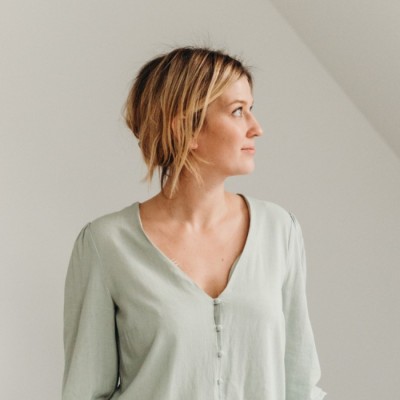Allbirds
Birkenstock has definitely dominated the sh(new)s this season. And while their recent IPO may have faced challenges in a rough investor market, it nevertheless tells an incredible story of innovation, brand development, and the resilience of cult status. But since you can’t (advisably) wear sandals in cold weather, we were curious to see who else is making waves in foot fashion at the moment.
TL;DR
In order to stand out amongst DTC Sneaker brands, you need to have your own spin. Whether that be exceptional fit and quality, the sustainable approach, or luxury for less. Some brands are making a solid play on wardrobe staples, and despite the alternative options flooding the market, don’t discount the good old boot just yet.
Everybody’s Got a Spin on Sneakers
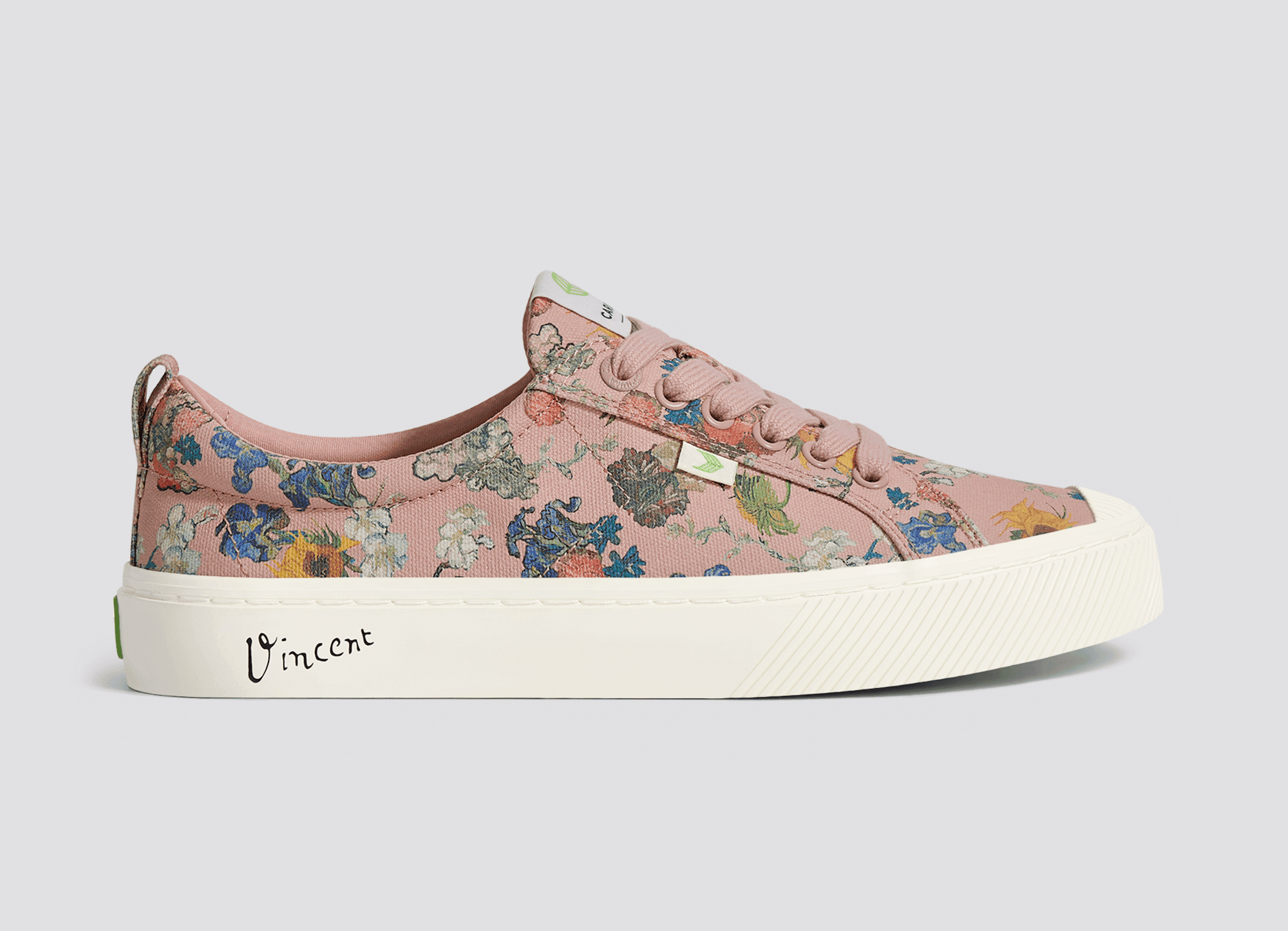
The leading shoe brand on the Next Big Shop Charts this week is a familiar name: Allbirds built their reputation based on a commitment to sustainability and comfort, wielding materials like merino wool, eucalyptus tree fiber, and sugarcane-based foam to create their fan-favorite sneakers. Even Obama was wearing “the world's most comfortable shoe” at one point!
Founded in 2016 by a former New Zealand footballer and a renewable materials expert, the two (then) co-CEOs took the brand from being a niche favorite of tech nerds (as all things launched on Kickstarter tend to be) to household name, going public towards the end of 2021 at a staggering $4.1 billion valuation.
While the sustainable shoe company has struggled since the IPO, thanks in large part to disappointing quarterly earnings calls – this past March they reported losses in excess of $100 million USD – don’t count these kicks out just yet. With an estimated $6.3 million in online sales just last week (that’s an average of roughly $790,000 per day), the company is on track to beat revenue numbers for 2022.
That doesn’t even take into account their increasing number of wholesale partners and international distributors, nor the close to 60 brick-and-mortar locations they have in the US (though CEO Joey Zwillinger did note that the company would be slowing the pace of store openings as part of a larger reorg during their most recent earnings call). Allbirds also notes in their 2022 SEC filings that sales are generally subject to seasonal trends, so they will typically see a larger portion of their net revenue come in the final quarter of the year as holiday shopping takes off.
Aaand, not to mention their highly anticipated net-zero M0.0NSHOT sneaker, scheduled to be released in the spring of 2024. Fly baby, fly.
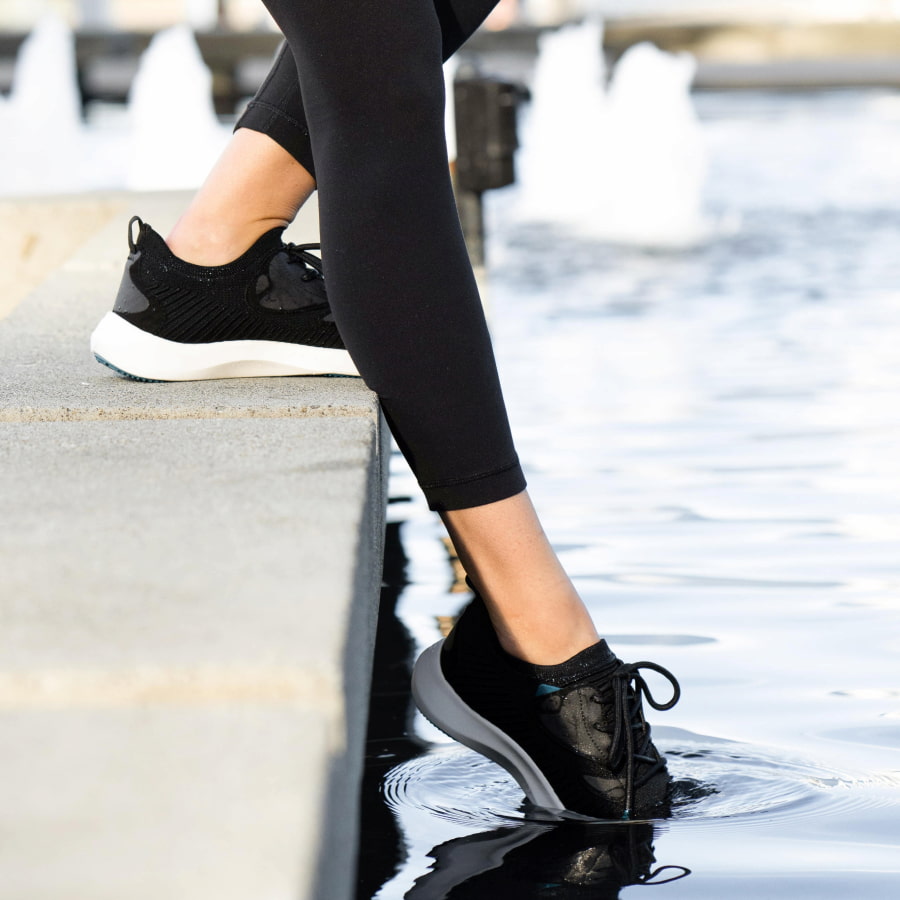
But Allbirds isn’t the only DTC shoe game in town. The tagline is “Get a grip on winter” with Vessi waterproof sneakers. Patenting an innovative knit material technology, Dyma-tex®, Vessi purports to make vegan shoes that will keep you dry come rain or shine, but still somehow let your dogs breathe, and it would seem we’re here for the dry twist. At an average price point of $135, they’re selling in the ballpark of 1,000 units a day online, if not more.
Brazilian-born brand Cariuma seems to be everywhere at the moment with their sustainable sneakers, fueled in part by inventive artistic collaborations, such as with the Van Gogh Museum to celebrate their 50th anniversary, the Boston Museum of Fine Arts, and more.
Designed with organic and recycled materials, the brand leads with sustainability as its mission and boasts an impressive reforestation program to help counteract the negative impact of the world of fast fashion. They are planting two trees for each pair sold and have documented contributions to at least two million trees planted in the Brazilian rainforests.
This means you can feel extra good about wearing your brand-new, art-inspired, eco-friendly sneakers from Cariuma.
Luxury footwear is right, with the average product from Oliver Cabell ringing up at about $230. That price point may just be justifiable though. The pitch is high-end materials like leather and Margom rubber outsoles, sourced ethically and handmade in Italy. But here's the clincher: No markup.
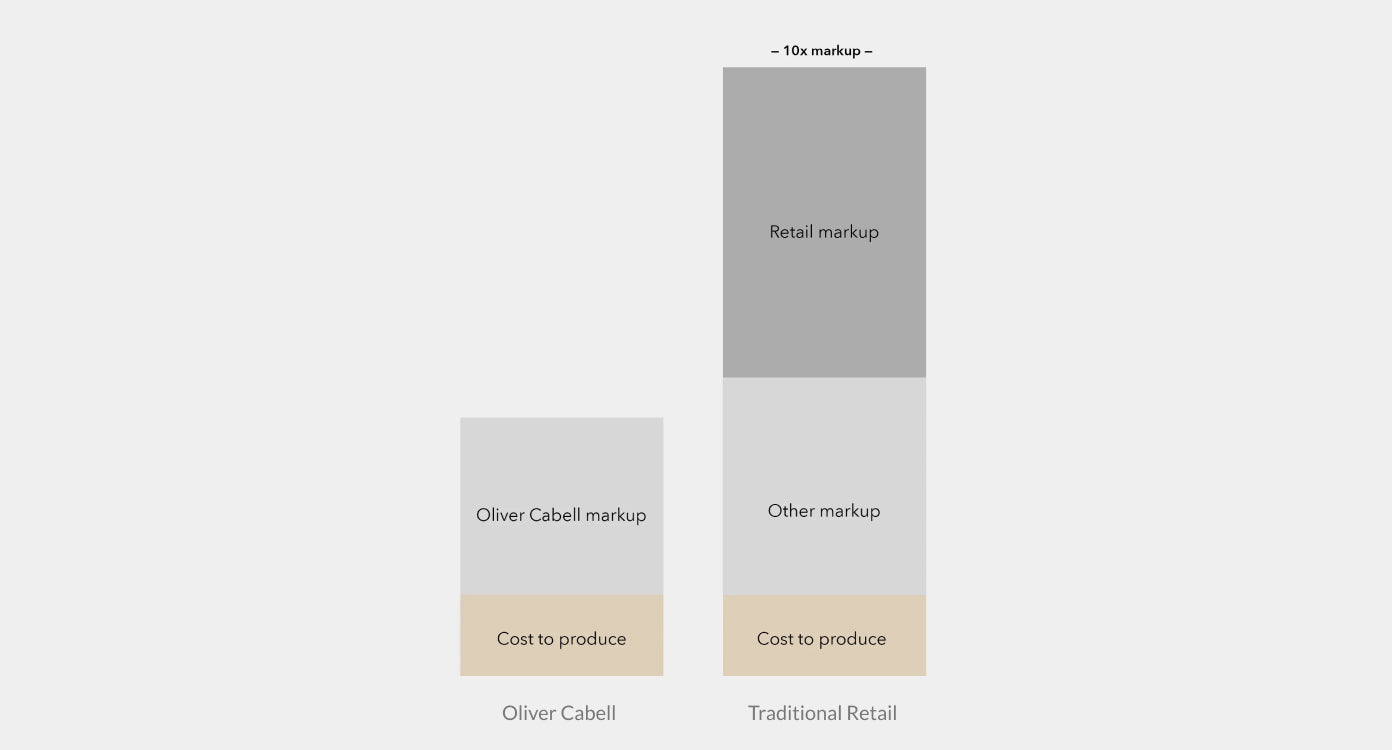
Because they are cutting out the markup, their catalog does come at a much lower cost than what you would get from traditional designer brands using similar materials. Just compare their iconic Low 1 sneaker at $219 to the very similar Saint Laurent version retailing at $745. You don’t get the logo, but you do get the quality.
And it looks like the pitch is working, with the company selling shoes online to the tune of somewhere around $100,000 a day.
Winning on Wardrobe Staples
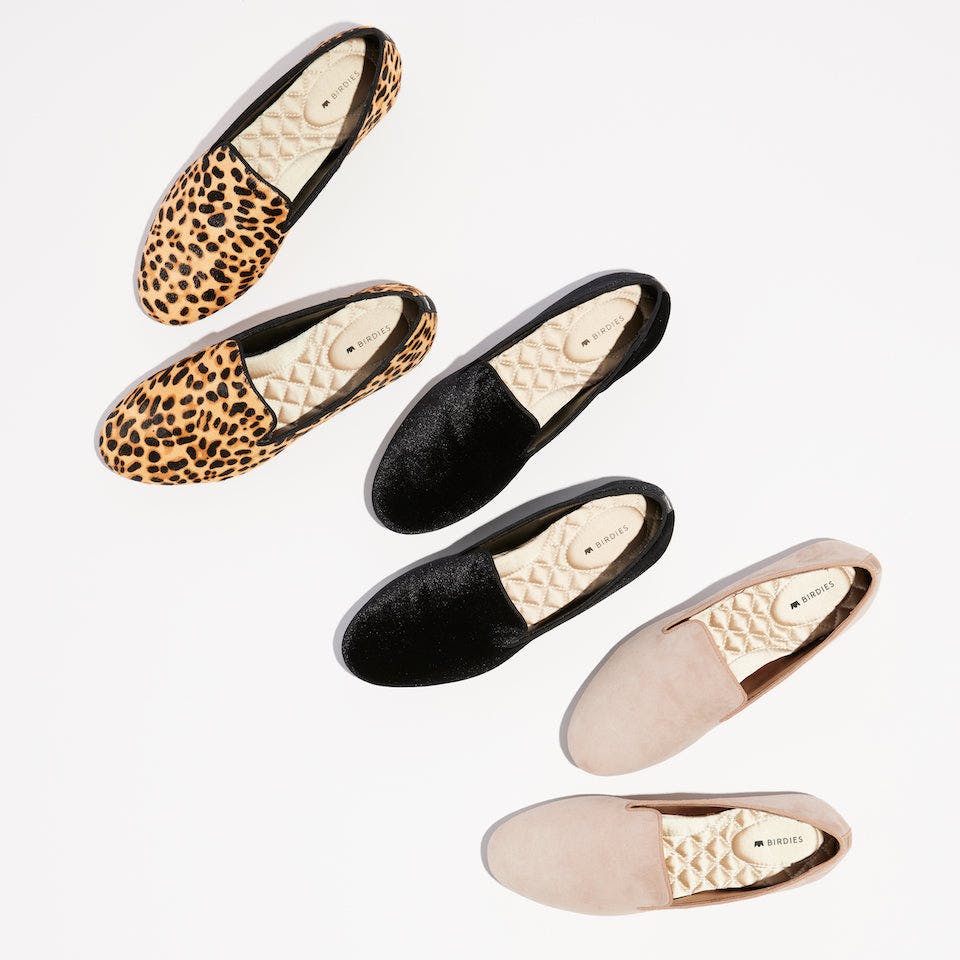
Rothy’s, selling washable shoes (and bags) knit with all recycled materials at an average price of about $150 (yet another nod to sustainable brands doing well on the charts) and are holding their own in Apparel. Women love the pointed-toe flats in Black featuring their In Love Insole™, a comfort-first wardrobe staple for sure.
It’s all about HEYDUDE™ for the dads, and for fall-appropriate wear they’ve been whittling down inventory on the Wendy Buffalo Plaid (some might call this particular colorway a bold choice for footwear, myself included). This brand of casual canvas flat comes at an average cost of about $58, which is significantly lower than most of the others on this list. But do be mindful of sizing (and wear) before you order, a quick review of feedback on these shoes tells you it can be hit or miss.
Get that slipper-vibe with a pair of Birdies, the female-founded footwear brand that has been storming the DTC market with pillow-soft flats you can wear all day any day without killing your feet. Known for side-stepping frump with chic design, they’re leaning into metallics and shimmer this season, and it certainly doesn’t seem to be hurting the bottom line. Last week, they saw an average of $192,500 in estimated online sales per day, with much of their newest line dominating the add-to-cart button.
Boots With(out) the Furrrr
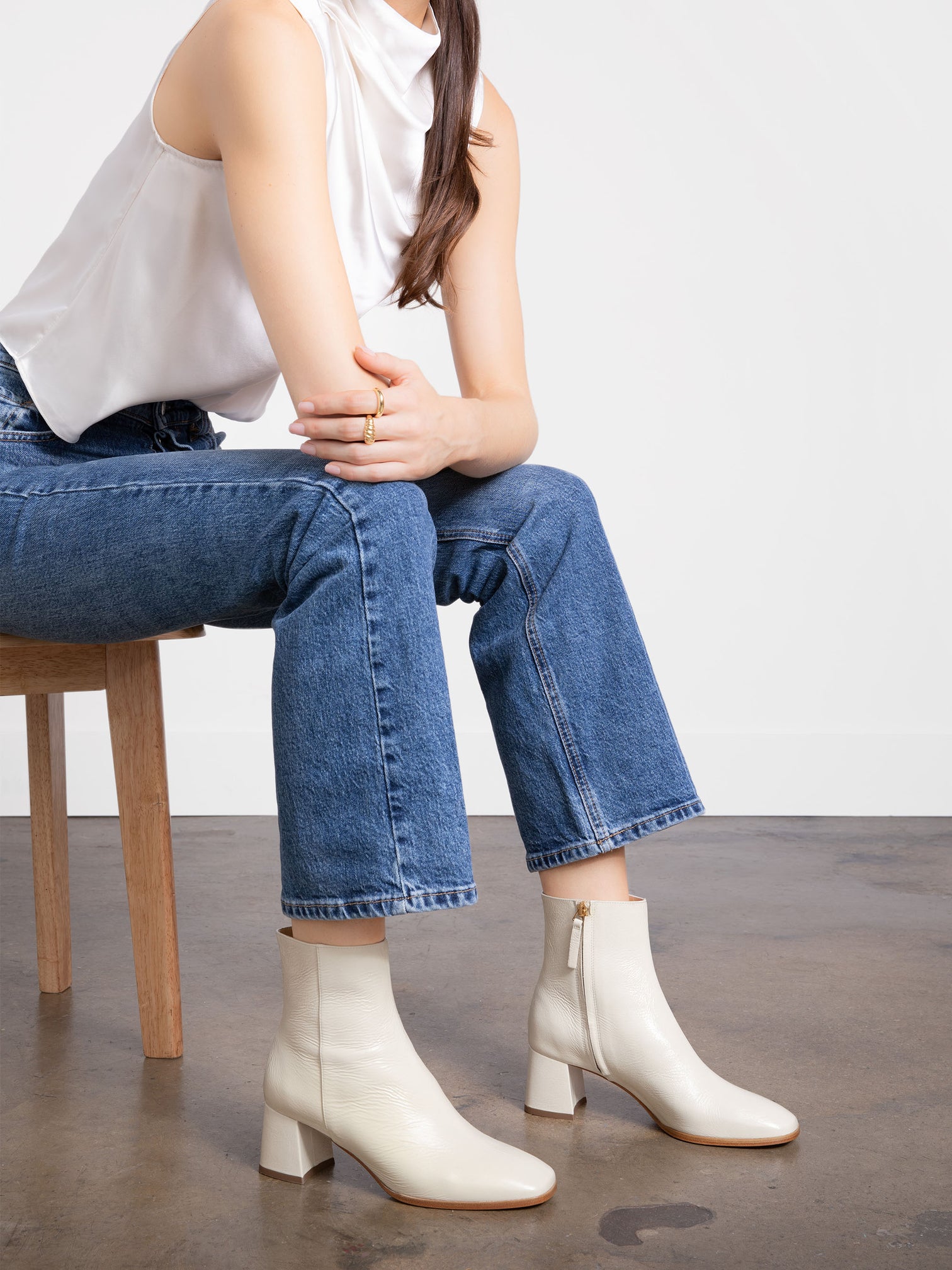
Given the season, you may be surprised to find the first set of boots a little further down the list, but Tecovas’ western wear is where it’s at if you’re looking to spur up for snow. The brand is celebrating 8 years in market this month, with bestsellers The Annie (for ladies), The Doc (for dudes), and The Bodie (limited edition short boot) leading the charge.
Also climbing the Apparel charts are Brunt Workwear (take their boot quiz to find the right fit for you), who market themselves as a work-wear company first and foremost, and are seeing online sales tick steadily upwards. But it remains to be seen if they can successfully emulate the function-over-fashion 90s fad status of the Caterpillar Colorado boot. (I feel I just aged myself with that comment.)
And while DTC-darling M Gemi is known for more than just boots: high-end Italian handmade heels, clogs, sandals, sneakers, you name it. But the Christina (yes, she’s a bootie) is their hot-ticket item and number one seller right now. Founded by Maria Gangemi, who grew up in Sicily, M Gemi is on a mission to preserve the traditions of craftsmanship, while modernizing the supply chain to minimize waste and keep costs and pricing within reason.
And there you have it!
What stands out amongst the many exciting brands on this list, is a common focus on building a sustainable brand at a digestible price point, in face of an industry known for fast-fashion and a general negative impact on the environment. And as we’ve seen across other verticals, this trend of shopping better shows no sign of slowing down.
As always, we’ll be back next week with more insights and trends from the Next Big Shop charts. Sign up for our newsletter below if you’d like these delivered straight to your inbox, or follow us on LinkedIn to stay in the know.
Updates delivered straight to your inbox
